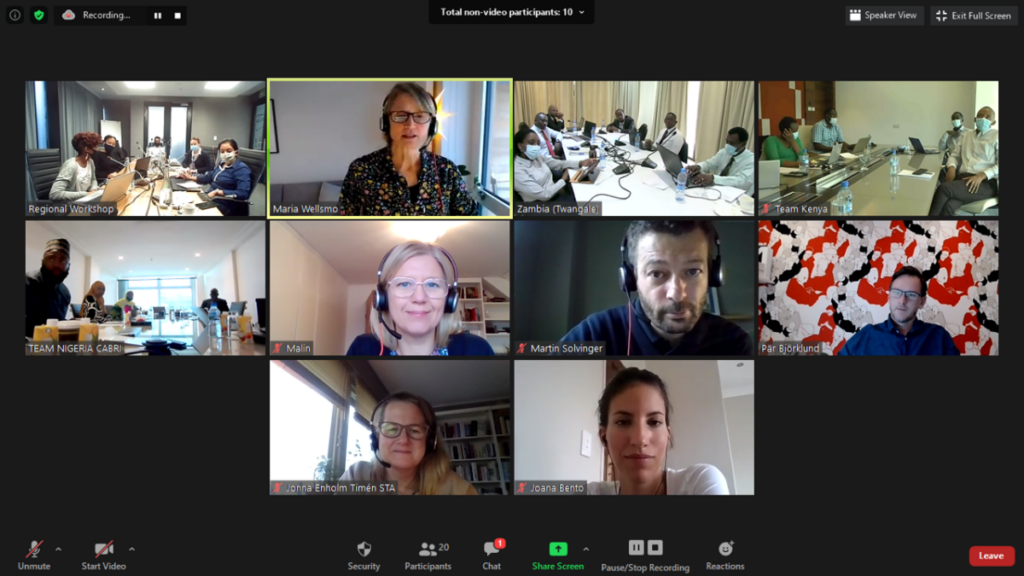
The four-country teams participating in our joint CABRI-STA programme on voluntary tax compliance took an online course on the PDIA approach and participated in a series of deconstruction workshops from the 12th of October to the 26th of November 2020.
The aim of the online course was to introduce the concepts of the PDIA approach and to evaluate their application in the context of countries. The resources provided by the course allowed the teams to reflect on the main approaches to tax administration reforms and the determining factors of tax compliance in their countries. Furthermore, the course also provided an opportunity for the teams to highlight their tax administration problems through evidence-gathering and affected stakeholder mapping.
Continuing the program, each team took part in two virtual framing workshops. These workshops, which were facilitated through collaborative tools, helped to frame, and contextualize the problems of identified tax authorities, determine potential causes, and identify entry points through which teams can begin to work on problem-solving by identifying ideas for solutions.
During the identification of ideas, the teams had to explore various sources of solutions. What we already know about implementing solutions to complex problems is that many reformers have an immediate appetite for external solutions, known as "best practices". These external solutions, while relevant, have limitations. This is owing to the fact that these practices are often "sophisticated" and can lead the administrations that duplicate them to have heavy premature loadbearing, in other words, to do too much, too quickly considering their limited resources and institutional capacities.
To mitigate this risk, the teams were requested to consider three additional sources of ideas: current practices (i.e., practices that do not work optimally, but provide an opportunity to learn about what works or what does not work in the existing context, and why); latent practices (ideas that are possible in the existing context, but which require some focused attention to emerge); and also, cases of positive deviance (ideas that are already implemented in similar contexts and yield positive results but are not the norm). These three sources of ideas favour the emergence of local solutions and a commitment to the reform environment, as their implementation requires consultation and interaction with stakeholders related to the problem.
In terms of finding solutions, strengthening taxpaying morality, one of the pillars of voluntary compliance, has been identified by all teams as a major point of their problems. Research on tax administration reforms indicates that a large portion of the domestic resource mobilization efforts was focused on international tax policy and tax authorities’ capacity building. On the other hand, understanding and improving taxpaying morality has been relatively neglected.
The first regional workshop ‒ an important phase of the programme‒ which country teams are currently participating in over the next two weeks, aims to ensure a good understanding of the different elements that influence voluntary compliance. At this first regional workshop, experts from STA, ATAF, CABRI and the Danish Tax Agency bring their knowledge and ideas on voluntary compliance strategies, theories and the search for factors that influence voluntary compliance, as well as the many actions that tax authorities can take to increase confidence in the administration and thus strengthen voluntary compliance of citizens and businesses. In addition, the national teams are teaching other teams their country context, the problems they have chosen and the work they have done so far, thus fostering a platform for peer exchange and learning. In the months that follow, country teams will engage with stakeholders to better understand the level of acceptance, foster a sense of urgency to reform, and advocate for the diagnosis of the root causes of the problem in order to enable the emergence of viable solutions through a consultative approach.